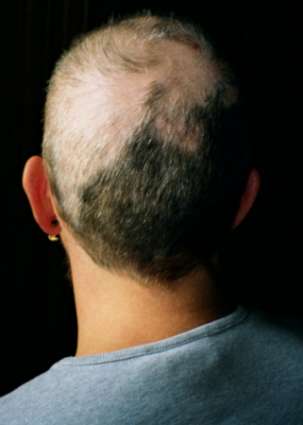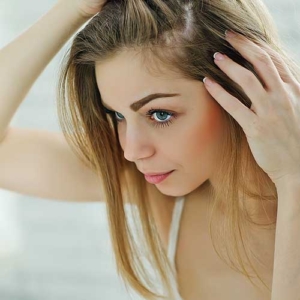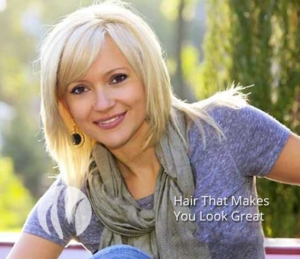Diabetes and Hair Loss: A Closer Look
 Having diabetes means that your body either doesn’t produce insulin, doesn’t use insulin effectively, or both. Insulin is the hormone responsible for converting sugar in the bloodstream into energy that can be used elsewhere in the body, but when you don’t have enough, sugar can build up in the bloodstream.
Having diabetes means that your body either doesn’t produce insulin, doesn’t use insulin effectively, or both. Insulin is the hormone responsible for converting sugar in the bloodstream into energy that can be used elsewhere in the body, but when you don’t have enough, sugar can build up in the bloodstream.
This excess sugar can damage your blood vessels, which prevents them from carrying enough oxygen to your hair follicles. Without enough oxygen, your hair follicles won’t act the way they’re meant to, and you might see hair loss or lack of new hair growth.
Hair Loss Treatment Options
Luckily, it is possible to treat the hair loss associated with diabetes. If hair loss is caused by poor management of your diabetes, then talking to your doctor about how better to control the condition is a smart move.
If you’re already managing your diabetes well and still need help, the treatment options below might be appropriate.
Biotin Supplements
There is evidence to suggest that people with diabetes might suffer from low levels of biotin, a vitamin which helps support healthy hair growth. Biotin can be taken as a daily supplement to encourage hair growth, but it’s best to seek advice from your doctor first.
Wigs and Hairpieces
If nothing seems to be improving your hair loss, wearing a beautiful human hair wig or women’s hair replacement system is a great way to preserve your confidence and self-esteem. Wigs made from real hair offer the most realistic effect, and it’s unlikely that anyone will ever notice that you’re wearing a wig. There are several hair loss options available that are proven to work.
Experiencing hair loss as a result of your diabetes doesn’t have to be the end of the world. By working with your doctor to manage the condition and exploring hair loss treatment options, you can keep your hair looking exactly the way you want it.
At North Mississippi Hair Loss Solutions, we know first-hand how hair loss can affect not only your appearance, but how it can affect your self-confidence and self-esteem in family, social and professional interactions.



 Trichotillomania is an obsessive-compulsive disorder (OCD). It refers to the repetitive and irresistible pulling of hair. A person suffering from trichotillomania may pull hair from the scalp, face, or pubic areas, leading to
Trichotillomania is an obsessive-compulsive disorder (OCD). It refers to the repetitive and irresistible pulling of hair. A person suffering from trichotillomania may pull hair from the scalp, face, or pubic areas, leading to 
 Losing your hair can be difficult. Many people make assumptions about what is causing them to lose their hair and actually end up causing more harm than good. The following guide walks you through a few of the common misconceptions that people have about
Losing your hair can be difficult. Many people make assumptions about what is causing them to lose their hair and actually end up causing more harm than good. The following guide walks you through a few of the common misconceptions that people have about 
 Most of us have heard the saying, “Blondes have more fun.” While that is simply a version of an ad campaign by Shirley Polykoff for Clairol hair color back in 1955, it is still relevant today to how we feel about certain
Most of us have heard the saying, “Blondes have more fun.” While that is simply a version of an ad campaign by Shirley Polykoff for Clairol hair color back in 1955, it is still relevant today to how we feel about certain 
